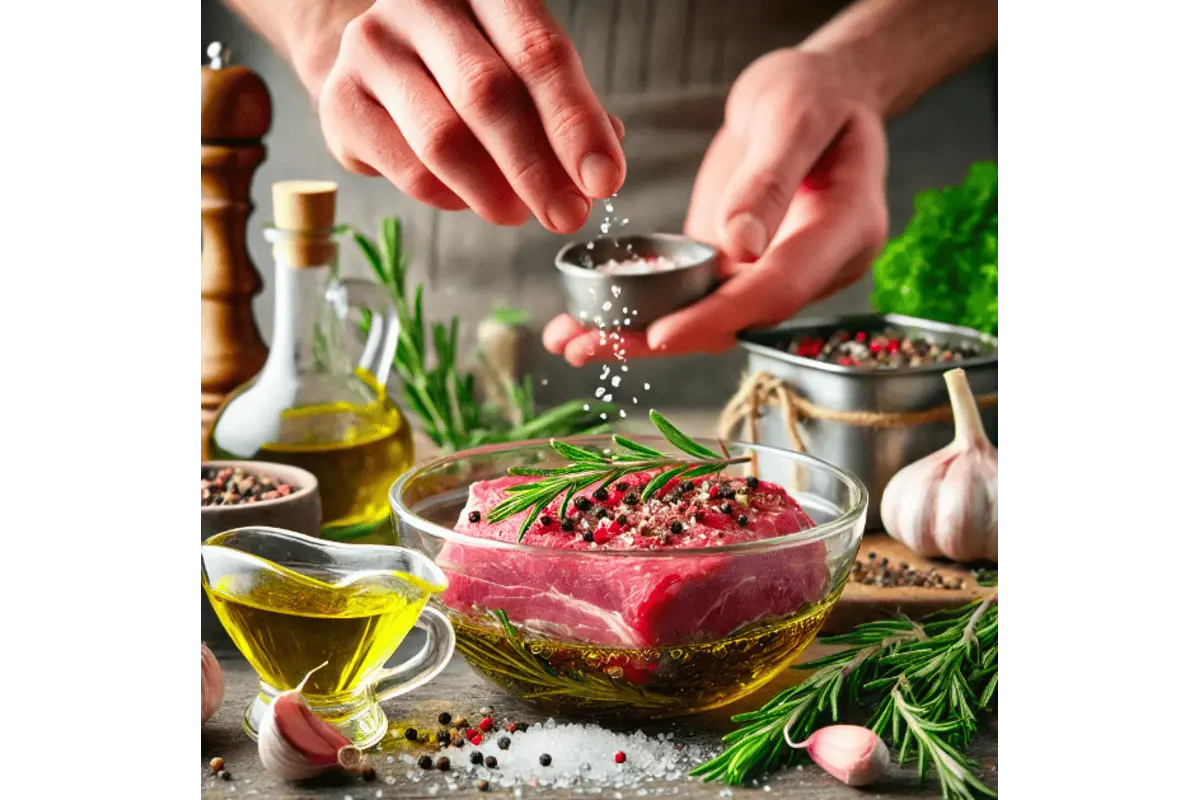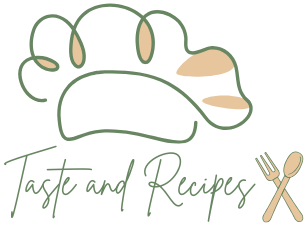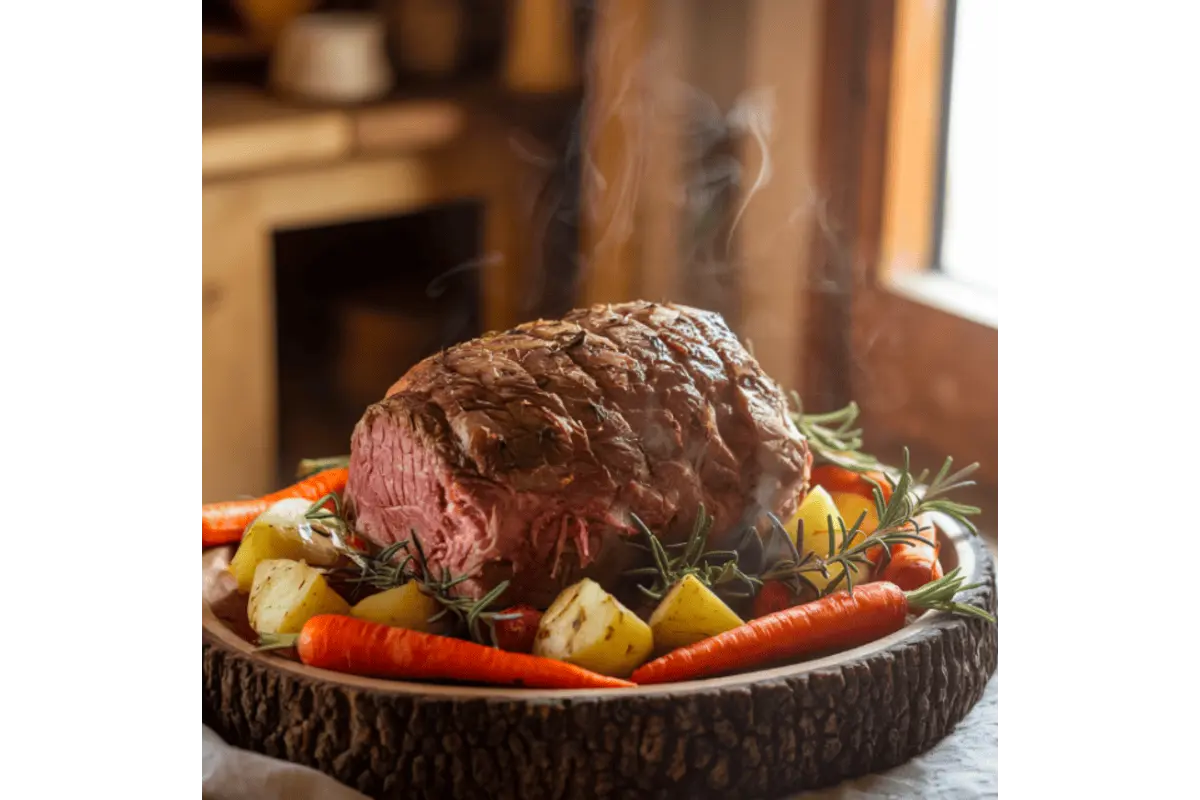If you’re a fan of hearty meals and exploring new culinary horizons, then deer meat roast recipes are a perfect fit for you. Deer meat, known for its rich flavor and lean profile, has been a staple in kitchens worldwide. From classic slow-cooked dishes to modern spins on traditional roasts, this guide has everything you need to know.
Wild game cooking tips highlight how versatile and nutritious deer meat can be, making it a go-to for home chefs. Let’s dive into the world of deer meat roast recipes and discover why this meat is cherished.
Table of Contents
What Makes Deer meat roast recipes Special?
Deer meat stands out not only for its flavor but also for its health benefits and versatility in cooking. It is often referred to as a “clean meat” because it’s free-range and naturally lean. Unlike beef or pork, Deer meat roast recipes has significantly less fat, making it an excellent option for people who are watching their calorie intake or want to maintain a balanced diet.
Unique Flavor Profile
One of the reasons why deer meat is so loved is its unique flavor. Often described as rich and slightly earthy, it carries a natural depth that pairs well with bold herbs and spices. Compared to beef, it has a slightly gamey taste, but with proper preparation, it can be mellowed to suit any palate. For instance, marinating with ingredients like red wine or buttermilk can reduce the gamey flavor while enhancing tenderness.
Environmental Benefits
Another aspect that makes Deer meat roast recipes special is its environmental impact. Deer are often hunted sustainably, making it a more eco-friendly choice compared to farmed meat. Plus, it’s free of antibiotics and hormones, which are common in commercial meat production. Choosing deer meat contributes to responsible eating practices, which is increasingly important for many consumers today.
Cultural and Historical Significance
Deer meat has a rich history. Historically, it was considered a delicacy and was often served at royal feasts. Today, it is a staple in many hunting communities and plays a central role in traditional cuisines worldwide. In regions like Scandinavia, deer meat dishes are celebrated for their connection to the land and heritage.
Transitioning into deer meat roast recipes, it’s essential to note that deer meat adapts beautifully to various cooking techniques, from slow cooking to braising. This adaptability is what makes it a favorite among chefs and home cooks alike.
Preparing Deer Meat for Roasting
Preparing deer meat correctly is key to achieving the best results. While it might seem intimidating at first, following a few simple steps ensures your deer meat roast recipes turn out perfectly every time.
Step 1: Thawing and Cleaning
Start by thawing deer meat in the refrigerator. This slow method preserves the texture and prevents bacterial growth. Never thaw deer meat on the counter, as this can lead to uneven defrosting and compromise food safety. After thawing, rinse the meat under cold water to remove any blood, which helps reduce the gamey flavor.
Step 2: Marinating for Tenderness
Marinating is an essential step for most deer meat recipes. A good marinade not only enhances flavor but also tenderizes the meat. Ingredients like olive oil, garlic, and acidic components such as lemon juice or red wine work wonders. For example, a simple rosemary and garlic marinade can elevate the flavor profile of your roast without overpowering it.
Step 3: Selecting the Right Seasonings
Deer meat roast recipes pairs well with robust flavors. Popular seasonings include:
- Garlic and onion powder for depth.
- Paprika and cayenne for a spicy kick.
- Rosemary and thyme for an herbal note.
Using a dry rub made from these seasonings adds a crust to the roast when seared, locking in moisture and flavor. Always season generously, as deer meat’s lean nature can sometimes make it less forgiving if under-seasoned.
Step 4: Letting It Rest Before Cooking
Once seasoned or marinated, let the deer meat sit at room temperature for 30 minutes before cooking. This ensures even cooking and allows the flavors to meld. For a beginner-friendly approach, try starting with a slow-cooked recipe to get a feel for deer meat’s cooking characteristics.
Transitioning into the recipes, these preparatory steps lay the groundwork for a tender, flavorful roast that highlights the unique qualities of the Deer meat roast recipes. For another meat based recipe, you can check this baked ziti recipe.
Detailed Recipe: Rosemary Garlic Deer Meat Roast

This rosemary garlic deer meat roast is an easy and flavorful way to enjoy deer meat. It’s perfect for special occasions or a hearty family dinner.
Ingredients:
- 2–3 lbs deer meat roast
- 3 cloves garlic, minced
- 2 tbsp fresh rosemary, chopped
- 2 tbsp olive oil
- 1 tsp salt
- 1/2 tsp black pepper
- 1 cup beef broth
- 1/2 cup red wine (optional)
Instructions:
- Prepare the Marinade: In a small bowl, mix the minced garlic, rosemary, olive oil, salt, and black pepper.
- Marinate the Deer Meat: Rub the marinade all over the deer meat roast. Cover and refrigerate for at least 4 hours or overnight for best results.
- Preheat the Oven: When ready to cook, preheat your oven to 325°F.
- Sear the Roast: Heat a skillet over medium-high heat. Sear the deer meat on all sides until browned, about 2 minutes per side.
- Roast the Deer Meat: Transfer the roast to a roasting pan. Pour the beef broth and red wine (if using) into the pan. Cover with foil and roast for 90 minutes, or until the internal temperature reaches 135°F for medium-rare.
- Rest the Meat: Remove the roast from the oven and let it rest for 10 minutes before slicing.
- Serve and Enjoy: Serve with your favorite sides, such as roasted vegetables or mashed potatoes.
This recipe pairs beautifully with a glass of red wine or a side of wild rice pilaf, as suggested in One-Pot Meals Without Pasta.
Health Benefits of Cooking with Deer Meat
Deer meat is not just a flavorful addition to your meals; it is also packed with health benefits that make it an excellent choice for individuals looking to improve their diet. Whether you are cooking for yourself or preparing a family meal, incorporating deer meat into your recipes can contribute to a balanced and nutritious lifestyle. With its high protein content, low fat levels, and abundance of essential nutrients, deer meat stands out as a healthy alternative to traditional red meats.
Low in Fat, High in Protein
One of the most notable advantages of deer meat is its exceptionally low fat content. Unlike beef or pork, which often have higher fat percentages, deer meat is naturally lean. This makes it an ideal option for individuals aiming to reduce their calorie intake without compromising on flavor. The low fat levels also mean it has fewer saturated fats, which are often linked to heart disease. Moreover, this lean meat is an excellent source of high-quality protein, which plays a crucial role in:
- Repairing and building muscle tissue, making it perfect for active individuals.
- Supporting a healthy immune system to help ward off illness.
- Promoting overall bodily functions, including enzyme production and cell repair.
If you’re pursuing fitness goals or looking for a post-workout meal option, deer meat is a fantastic protein-rich choice to incorporate into your diet.
Rich in Vitamins and Minerals
Deer meat is often referred to as a “superfood” for good reason—it contains a variety of essential vitamins and minerals that support overall health. These nutrients include:
- Iron: Deer meat is an excellent source of iron, which is essential for the production of hemoglobin. Hemoglobin helps transport oxygen throughout the body, ensuring you have the energy to tackle your day. For individuals prone to anemia, eating iron-rich foods like deer meat can help prevent fatigue and other symptoms.
- Zinc: Zinc is vital for maintaining a robust immune system and supporting wound healing. Deer meat offers a generous dose of zinc, which can help your body fight off infections and recover faster from injuries.
- B Vitamins: This lean meat is loaded with B vitamins, particularly B12, which is critical for brain health and energy production. Vitamin B12 is also essential for red blood cell formation, ensuring that your body functions efficiently and stays energized throughout the day.
Incorporating these nutrients into your diet through deer meat can make a noticeable difference in how you feel and function daily.
Omega-3 Fatty Acids
Unlike many other types of red meat, deer meat contains a healthy amount of omega-3 fatty acids. These essential fats are known for their ability to reduce inflammation, lower blood pressure, and improve heart health. Omega-3s are also associated with enhanced brain function and may help reduce the risk of conditions such as Alzheimer’s disease.
For individuals aiming to balance their omega-3 to omega-6 ratio, deer meat provides an excellent alternative to traditional meats that often lack these beneficial fats. This makes it particularly appealing for those who are mindful of their cardiovascular health or looking for brain-boosting nutrition.
Naturally Lean and Antibiotic-Free
Another significant advantage of deer meat is its natural origin. Because deer are typically wild or free-range animals, their meat is free from the antibiotics and hormones commonly found in factory-farmed meats. This clean, natural aspect of deer meat makes it a healthier and more sustainable choice for your family.
Additionally, the lean nature of deer meat means you can enjoy flavorful dishes without worrying about consuming excessive amounts of unhealthy fats. For individuals watching their cholesterol levels, this is an added benefit.
Suitable for Specialized Diets
Deer meat is highly versatile and aligns with a variety of specialized diets, making it an inclusive choice for diverse dietary needs.
- Keto and Low-Carb Diets: Deer meat’s high protein and low carbohydrate content make it a perfect fit for ketogenic and low-carb plans. Its natural leanness complements these diets without requiring additional fat trimming.
- Paleo Diets: Following the paleo principle of eating natural, unprocessed foods? Deer meat is a textbook example of a paleo-friendly protein source, connecting you to the primal roots of human nutrition.
- Gluten-Free Diets: Naturally gluten-free, deer meat is safe for individuals with gluten sensitivities or those who have celiac disease. It’s a great way to diversify protein sources without worrying about hidden allergens.
With its adaptability to so many dietary approaches, deer meat is a convenient and reliable option for households with different nutritional needs.
A Sustainable Protein Source
In addition to its nutritional benefits, deer meat is also a sustainable choice for environmentally conscious consumers. Hunting or purchasing deer meat supports ecological balance by managing deer populations in areas where overpopulation can harm ecosystems. When harvested ethically, deer meat provides a renewable food source that contributes to biodiversity conservation.
For those who prioritize sustainability, deer meat offers a guilt-free way to enjoy red meat. By choosing this eco-friendly option, you’re supporting practices that have less impact on the environment compared to traditional factory farming.
Enhancing Your Meals with Deer Meat
By incorporating deer meat into your meals, you’re not only adding a rich and savory flavor to your dishes but also choosing a food source that supports your health, fits into specialized diets, and aligns with sustainable eating practices. Deer meat pairs beautifully with bold flavors like garlic, rosemary, and red wine, making it easy to create delicious recipes that everyone will love.
For more ideas on how to pair your meals, check out One-Pot Meals Without Pasta, which offers creative ways to incorporate nutrient-packed sides into your dishes.
Conclusion
Deer meat offers an unparalleled combination of flavor, nutrition, and versatility. Whether you’re a seasoned cook or just starting with game meat, these deer meat roast recipes provide all the tools and inspiration you need to succeed. From choosing the best cut to creating mouthwatering dishes, every detail matters.
Additionally, knowing how to repurpose leftovers into tacos, sandwiches, or shepherd’s pie ensures nothing goes to waste. By following the steps and tips outlined here, you can create meals that are not only delicious but also memorable.
If you’re new to meal prepping, consider checking out The Ultimate Guide to Meal Prep Containers for storage tips that make your cooking even easier. And don’t forget to pair your meals with the right sides or beverages for a truly satisfying experience.
Deer meat is more than just a meal—it’s a culinary adventure. So, embrace the journey, try new recipes, and enjoy the rich, savory goodness that deer meat roast recipes have to offer.

